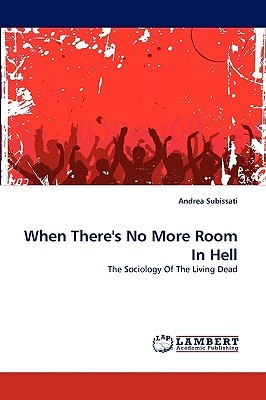
- Išsiųsime per 10–14 d.d.
- Autorius: Andrea Subissati
- Leidėjas: LAP Lambert Academic Publishing
- Metai: 2010
- Puslapiai: 108
- ISBN-10: 3838387783
- ISBN-13: 9783838387789
- Formatas: 15.2 x 22.9 x 0.7 cm, minkšti viršeliai
- Kalba: Anglų
- Extra -15 % nuolaida šiai knygai su kodu: ENG15
Atsiliepimai
Aprašymas
The recent popularity of horror films featuring zombies is indicative of social tensions surrounding racism, globalization and rampant Western consumption. In the films comprising George A. Romero's Dead series, differences between survivors become blurred when human value is reduced to sheer humanity. Romero's films show that social preoccupations of race, gender and class (among others) remain problematic in the undead, post-apocalyptic context and often take precedence over the need for cooperation and resources for survival. The zombies themselves are sociologically loaded; from their colonial origins in Haiti to their "Americanization", combining themes of racism, savagery and othering. As a method of inquiry, cultural materialism seeks to describe the tensions that exist between culture as it is lived and culture as it is depicted. This book outlines the underlying social critique that underscores Romero's entire series. Drawing from cultural materialism and active audience theory, this book shows how Romero's Dead series can inspire reflexivity and assessment of our everyday roles in consumption processes while helping us speculate on the endings of our own narratives.EXTRA 15 % nuolaida su kodu: ENG15
Akcija baigiasi už 1d.18:41:32
Nuolaidos kodas galioja perkant nuo 10 €. Nuolaidos nesumuojamos.

- Autorius: Andrea Subissati
- Leidėjas: LAP Lambert Academic Publishing
- Metai: 2010
- Puslapiai: 108
- ISBN-10: 3838387783
- ISBN-13: 9783838387789
- Formatas: 15.2 x 22.9 x 0.7 cm, minkšti viršeliai
- Kalba: Anglų




Atsiliepimai